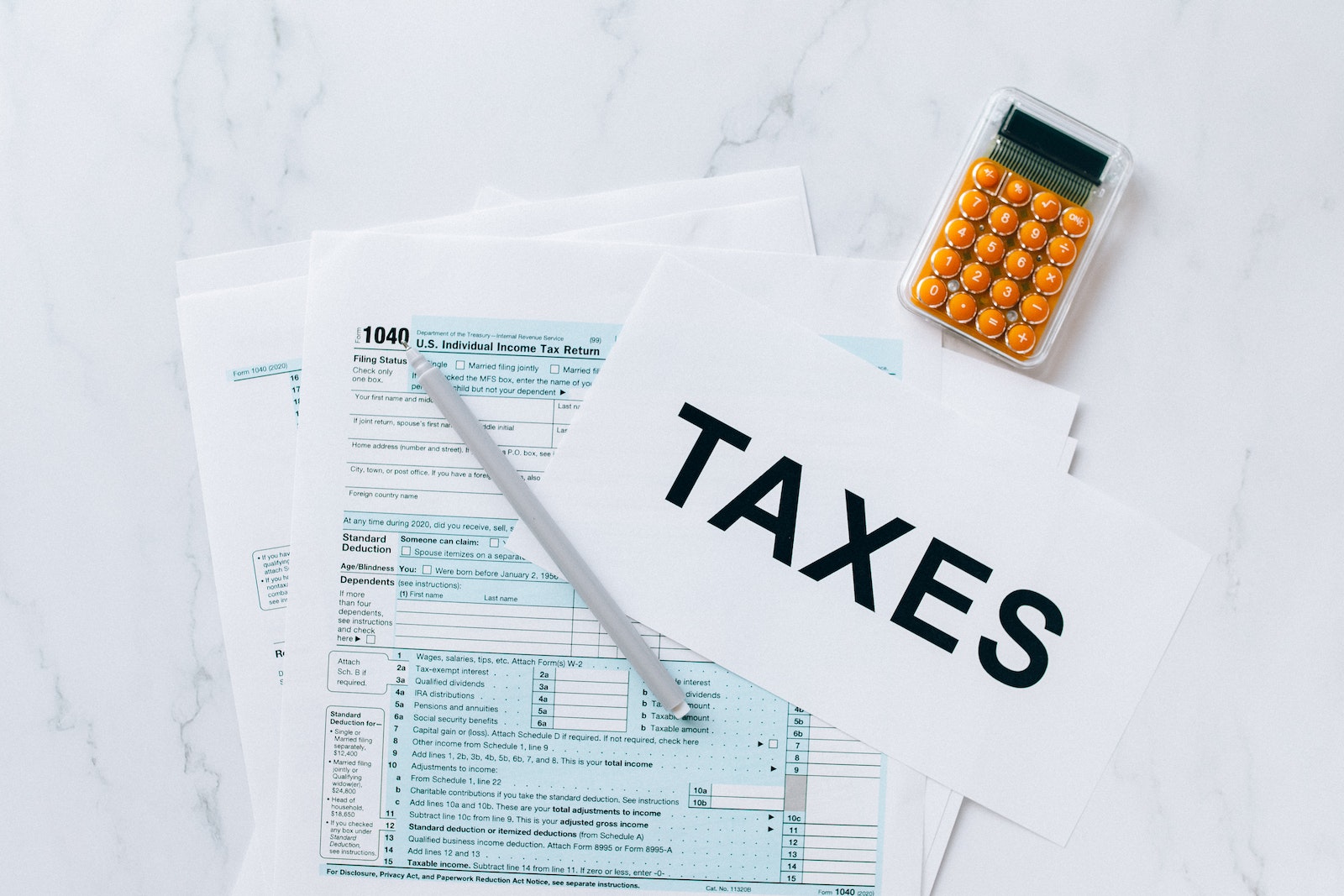Corporate income tax (CIT) is a tax levied on the profits of enterprises and other organizations that are established in China or have their effective management in China. CIT is one of the main taxes that foreign investors and businesspeople need to pay when they set up and run companies in China. CIT is also subject to frequent changes and adjustments, as China’s tax system evolves and reforms to adapt to the changing economic and social environment.
If you are a foreign investor or businessperson who owns or operates a company in China, you need to be aware of how to file corporate income tax in China in 2023 according to the latest laws and regulations. In this article, we will explain what are the main features and rules of corporate income tax in China, what are the main steps and procedures you need to follow to file corporate income tax in China, and what are the main benefits and incentives you can enjoy by filing corporate income tax in China.
What are the main features and rules of corporate income tax in China?
According to China’s Corporate Income Tax Law and its implementation regulations, which were revised and amended in 2018 and 2019 respectively, the main features and rules of corporate income tax in China are as follows:
- Taxpayers: The taxpayers of corporate income tax in China are enterprises and other organizations that have income from production, business operations, or other sources. There are two types of taxpayers: resident enterprises and non-resident enterprises. Resident enterprises are those that are established in China or have their effective management in China. Non-resident enterprises are those that are not established in China or do not have their effective management in China, but have establishments or places in China that generate income, or have income from sources within China without any establishments or places in China.
- Tax base: The tax base of corporate income tax in China is the taxable income of taxpayers. Taxable income is calculated by deducting non-taxable income, tax-exempt income, various expenses, losses, allowances, etc. from the total income of taxpayers. Total income includes income from production, business operations, equity investments, asset transfers, leasing property rights, interest, dividends, royalties, donations, subsidies, etc.
- Tax rate: The standard tax rate of corporate income tax in China is 25%. However, there are different preferential tax rates for different types of taxpayers or industries. For example, small low-profit enterprises can enjoy a reduced tax rate of 20%, while high-tech enterprises that meet certain criteria can enjoy a reduced tax rate of 15%. There are also special tax rates for non-resident enterprises that have income from sources within China without any establishments or places in China. For example, the withholding tax rate for dividends is 10%, while the withholding tax rate for royalties is 20%.
- Tax year: The tax year of corporate income tax in China is generally the same as the calendar year, i.e., from January 1st to December 31st. However, taxpayers can apply for a different tax year with the approval of the competent tax authorities if they have special reasons.
- Tax declaration: The taxpayers of corporate income tax in China need to declare and pay corporate income tax on a quarterly basis and an annual basis. The quarterly declaration should be made within 15 days after the end of each quarter. The annual declaration should be made within five months after the end of each year. The taxpayers need to submit various forms and documents to support their declaration, such as financial statements, accounting vouchers, invoices, contracts, etc.
The above features and rules are subject to change and adjustment according to the latest policies and regulations issued by the competent authorities. Therefore, it is important for foreign investors and businesspeople to keep abreast of the latest developments and updates on corporate income tax in China.
What are the main steps and procedures to file corporate income tax in China?
According to China’s Corporate Income Tax Law and its implementation regulations, as well as other relevant rules and guidelines issued by the competent authorities, the main steps and procedures to file corporate income tax in China are as follows:
- Register as a taxpayer. The first step to file corporate income tax in China is to register as a taxpayer with the competent tax authorities. This can be done either by applying online through the National Tax Service Platform (http://www.chinatax.gov.cn/) or by visiting the local tax bureau in person. The taxpayers need to provide various information and documents to complete the registration, such as business license, legal representative’s ID card, bank account, contact information, etc. The taxpayers will receive a taxpayer identification number (TIN) and a tax registration certificate after the registration is approved.
- Keep accounting records and issue invoices. The second step to file corporate income tax in China is to keep accounting records and issue invoices according to the relevant accounting and invoicing standards and rules. The taxpayers need to adopt the accrual basis of accounting and use the Chinese currency (RMB) as the functional currency. The taxpayers also need to issue special VAT invoices or general VAT invoices for their sales of goods or services, and obtain special VAT invoices or general VAT invoices for their purchases of goods or services. The taxpayers need to keep their accounting records and invoices for at least 10 years for tax inspection purposes.
- Calculate taxable income and tax payable. The third step to file corporate income tax in China is to calculate taxable income and tax payable according to the relevant tax laws and regulations. The taxpayers need to determine their total income, non-taxable income, tax-exempt income, various expenses, losses, allowances, etc., and deduct them from their total income to obtain their taxable income. The taxpayers also need to apply the applicable tax rate and any preferential policies or incentives to their taxable income to calculate their tax payable.
- Declare and pay corporate income tax. The fourth step to file corporate income tax in China is to declare and pay corporate income tax on a quarterly basis and an annual basis. The taxpayers need to fill in various forms and submit them online through the National Tax Service Platform or offline through the local tax bureau within the prescribed time limit. The taxpayers also need to attach various documents and materials to support their declaration, such as financial statements, accounting vouchers, invoices, contracts, etc. The taxpayers need to pay their corporate income tax within the prescribed time limit through online banking or offline banking.
- Handle tax-related matters. The fifth step to file corporate income tax in China is to handle any tax-related matters that may arise during or after the declaration and payment process. For example, the taxpayers may need to adjust their declaration or payment due to errors or changes in their income or expenses, apply for tax refunds or exemptions due to overpayment or special circumstances, deal with tax audits or inspections conducted by the competent tax authorities, resolve any tax disputes or controversies that may occur, etc.
The above steps and procedures are subject to change and adjustment according to the latest policies and regulations issued by the competent authorities. Therefore, it is important for foreign investors and businesspeople to consult with professional tax advisors or agents who can help them with filing corporate income tax in China.
What are the main benefits and incentives of filing corporate income tax in China?
Filing corporate income tax in China not only fulfills the legal obligations of foreign investors and businesspeople who own or operate companies in China, but also brings some benefits and incentives for them. Here are some of them:
- Reducing tax burden and increasing profitability. Filing corporate income tax in China can help foreign investors and businesspeople reduce their tax burden and increase their profitability by taking advantage of various preferential policies and incentives offered by the Chinese government. For example, foreign investors and businesspeople can enjoy lower tax rates, exemptions, deductions, credits, refunds, etc., for certain types of taxpayers or industries that are encouraged or supported by the government. Foreign investors and businesspeople can also benefit from various tax treaties or agreements that China has signed with other countries or regions to avoid double taxation or reduce withholding taxes.
- Improving compliance and reputation. Filing corporate income tax in China can help foreign investors and businesspeople improve their compliance and reputation by following the relevant laws and regulations and fulfilling their social responsibilities. For example, foreign investors and businesspeople can avoid penalties such as fines, confiscation of illegal gains, suspension of business activities, revocation of business licenses, or even criminal liability that may result from non-compliance or evasion of corporate income tax in China. Foreign investors and businesspeople can also enhance their image and credibility among their customers, partners, suppliers, employees, regulators, etc., by demonstrating their honesty and integrity in paying their fair share of taxes in China.
- Expanding business opportunities and growth potential. Filing corporate income tax in China can help foreign investors and businesspeople expand their business opportunities and growth potential by accessing more resources and support from the Chinese government and market. For example, foreign investors and businesspeople can enjoy more market access and fair competition by registering as e‑commerce operators in China and obtaining a business license. Foreign investors and businesspeople can also leverage more policy support and incentives by participating in China’s Belt and Road Initiative or innovating with China’s science and technology talent pool. Foreign investors and businesspeople can also tap into more consumer demand and satisfaction by complying with product quality and safety standards and protecting personal information and consumer rights.
In conclusion, filing corporate income tax in China is a crucial and beneficial process for foreign investors and businesspeople who own or operate companies in China. Foreign investors and businesspeople need to be aware of the main features and rules of corporate income tax in China, the main steps and procedures to file corporate income tax in China, and the main benefits and incentives of filing corporate income tax in China. By complying with the law and adapting to the changing market environment, foreign investors and businesspeople can achieve success and sustainability in China.
Frequently Asked Questions
Corporate income tax (CIT) is a tax levied on the profits of enterprises and other organizations that are established in China or have their effective management in China. Value-added tax (VAT) is a tax levied on the added value of goods or services at each stage of production or circulation. CIT is calculated based on the taxable income of taxpayers, while VAT is calculated based on the sales revenue or purchase cost of taxpayers. CIT is paid on a quarterly or annual basis, while VAT is paid on a monthly or quarterly basis.
An enterprise is considered a resident enterprise for corporate income tax purposes in China if it is established in China or has its effective management in China. Effective management refers to the overall management and control over the production, business operations, personnel, finance, accounting, properties, etc., of an enterprise. An enterprise is considered a non-resident enterprise for corporate income tax purposes in China if it is not established in China or does not have its effective management in China.
The taxable income of an enterprise for corporate income tax purposes in China is calculated by deducting non-taxable income, tax-exempt income, various expenses, losses, allowances, etc., from the total income of an enterprise. Total income includes income from production, business operations, equity investments, asset transfers, leasing property rights, interest, dividends, royalties, donations, subsidies, etc. Non-taxable income includes income from treasury bonds, dividends or profits received from resident enterprises within China, etc. Tax-exempt income includes income from agriculture, forestry, animal husbandry, fishery, etc., income from qualified environmental protection or energy-saving projects, etc. Various expenses include reasonable costs, expenses, taxes, losses, etc., that are related to the production or business operations of an enterprise. Losses include net operating losses that can be carried forward for up to five years.
To apply for preferential tax policies or incentives for corporate income tax purposes in China, an enterprise needs to meet the relevant criteria and conditions stipulated by the competent authorities, such as type of taxpayer or industry, location of establishment or operation, amount of investment or revenue, etc. An enterprise also needs to submit various documents and materials to prove its eligibility and qualification for the preferential tax policies or incentives, such as business license, financial statements, tax returns, certificates or licenses, contracts, etc. An enterprise also needs to report and record its application and implementation of the preferential tax policies or incentives to the competent tax authorities.
To deal with tax audits or inspections for corporate income tax purposes in China, an enterprise needs to coöperate with the competent tax authorities and provide them with the necessary information and documents related to its production or business operations, income or expenses, taxes or fees, etc. An enterprise also needs to rectify any errors or violations that are found by the competent tax authorities and pay any taxes or penalties that are due. An enterprise also has the right to appeal or dispute any decisions or actions taken by the competent tax authorities if it disagrees with them.
Sources:
- The State Council of China | E‑Commerce Law of the People’s Republic of China
- The State Taxation Administration of China | Announcement on Matters Concerning Value-Added Tax Policies for Cross-Border E‑Commerce Retail Imports
- The State Taxation Administration of China | Announcement on Matters Concerning Corporate Income Tax Policies for Cross-Border E‑Commerce Retail Imports
- The State Taxation Administration of China | Announcement on Matters Concerning Consumption Tax Policies for Cross-Border E‑Commerce Retail Imports
- The State Taxation Administration of China | Announcement on Matters Concerning Customs Duties Policies for Cross-Border E‑Commerce Retail Imports








